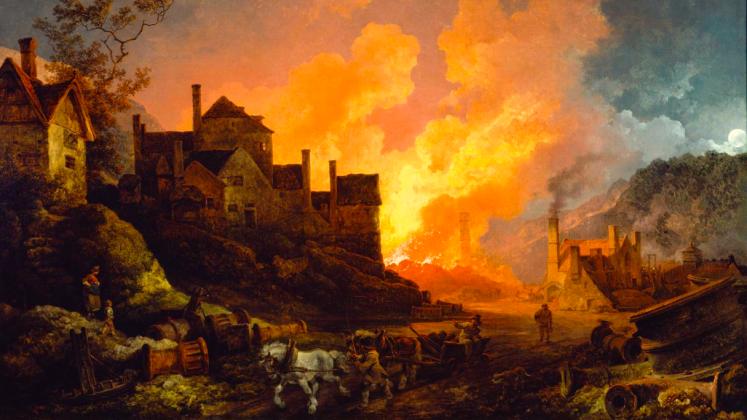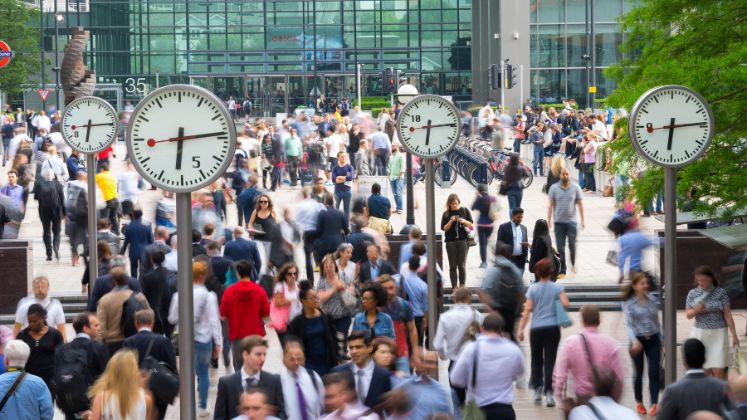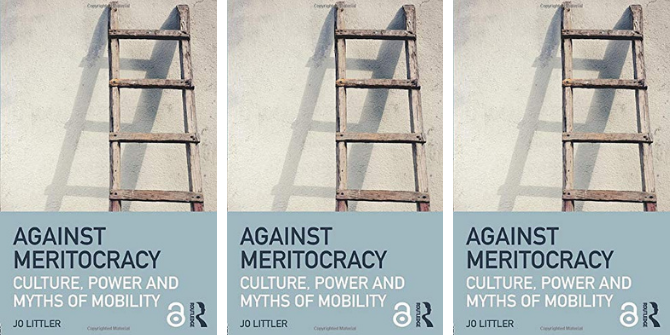Dan Evans’s A Nation of Shopkeepers explores the growth of the “petty bourgeoisie” in the UK following Thatcherism, as the rise of home ownership, small landlordism and changes to the world of work instilled individualist tendencies among this section of the middle class. According to Vladimir Bortun, the book is an intellectual tour de force, though he questions aspects of how Evans analyses Britain’s class structure.
 A Nation of Shopkeepers is not your typical sociology book. Rather, it feels like a long letter written by Evans to his fellow leftists about how they’re not “getting” the petty bourgeoisie. It was not always like that. As he shows in Chapter One, Marxist classics – from Marx himself to Trotsky to Poulantzas – paid close attention to the socio-economic and political characteristics of the petty bourgeoisie. Unlike the working class, it owned its means of production (shopkeepers, artisans, small landlords, farmers) but, unlike the bourgeoisie, was always at risk of being pushed into the ranks of the proletariat by capitalism’s inherent tendency towards monopoly and proneness to crisis. As a result of that, the petty bourgeoisie would eventually wither as a distinct class.
A Nation of Shopkeepers is not your typical sociology book. Rather, it feels like a long letter written by Evans to his fellow leftists about how they’re not “getting” the petty bourgeoisie. It was not always like that. As he shows in Chapter One, Marxist classics – from Marx himself to Trotsky to Poulantzas – paid close attention to the socio-economic and political characteristics of the petty bourgeoisie. Unlike the working class, it owned its means of production (shopkeepers, artisans, small landlords, farmers) but, unlike the bourgeoisie, was always at risk of being pushed into the ranks of the proletariat by capitalism’s inherent tendency towards monopoly and proneness to crisis. As a result of that, the petty bourgeoisie would eventually wither as a distinct class.
Over the past century, [the petty bourgeoisie] expanded and diversified, as key developments such as the growth of the (welfare) state, the massification of education or the rise of cultural industries have added new layers to the proverbial ‘shopkeeper’.
However, as Evans points out, the opposite has happened: over the past century, this class expanded and diversified, as key developments such as the growth of the (welfare) state, the massification of education or the rise of cultural industries have added new layers to the proverbial “shopkeeper” – this is what Evans calls the “new petty bourgeoisie”’. This class fraction is, despite some similarities, distinct from the so-called “professional-managerial class”, which sits below the capitalist class and is defined by its role in managing the affairs of the latter (executives, lawyers, accountants, journalists).
Thus, due to its unprecedented expansion, the ideology and values of the petty bourgeoisie have spread throughout society, including within the contemporary left. As Evans notes, “this is why it is so important to understand the petty bourgeoisie itself” (300). What are these values, then, and what are they rooted in?
Evans contrasts the stability that has historically characterised both the working class and the bourgeoisie with the inherently precarious condition of the petty bourgeoisie. This class is perpetually faced with uncertainty, striving to climb the social ladder or at least avoid falling down it. In turn, this breeds an individualist outlook which consolidated and spread during the neoliberal era and is today often translated – particularly among the “old” fraction of this class – into voting for right-wing populist parties. Countering that would require the left to build an alliance between the working class and the petty bourgeoisie, as both have interests that objectively clash with those of the capitalist class.
But there is something problematic in how Evans justifies the existence of petty bourgeoisie’s two fractions. If shopkeepers and farmers are part of the (old) petty bourgeoisie because they own their means of production, then with public servants or academics (the new petty bourgeoisie) it is their supposed individualism that places them in this same social class (150). In other words, the former is part of the petty bourgeoisie due to its objective class location, but the latter is so due to its subjective class outlook. Making the latter the top criterion of class is not just analytically inconsistent but also inconsistent with the Marxist tradition that Evans seems to align himself to.
Perhaps more problematic is Evans’ relative lack of evidence of said individualism. Indeed, he does not explain how that claim squares up with the increased levels of unionisation and left-wing affinities observable in recent years among some of these new layers of the petty bourgeoisie. As Evans himself acknowledges, “it is the declassed, downwardly mobile graduates who march, who have placards, who have adopted the accoutrements and iconography of socialism, the working class and collectivism” (141).
Only in the concluding chapter does the author attempt to makes sense of this apparent contradiction: the left-wing orientation of the layers of graduates in non-graduate jobs – who in Britain, as he correctly points out, have formed the main social base of Corbynism – would still be down to their individualist outlook, a by-product of their frustration at being denied the upward social mobility that their university degrees once bore the promise of. Yet again, the author hardly provides any evidence for this conjecture. Instead, he invites us to consider a hypothetical situation:
“The fundamental difference between the graduate call centre worker and the non-graduate call centre worker is that the proletarianized graduate did not expect to be in a low-paid, deskilled job. … It is unlikely that the proletarian colleague with no degree has a LinkedIn profile, for example, or is continually applying for other jobs. While they are sharing the same experience now, their experiences and ideology are not the same as the static life experience of the working class” (281).
Even if this difference was true, though, would it be enough to designate to different social classes people working in the same job? Are people’s career aspirations or educational backgrounds more defining of their class status than their objective location in the economic system? Also, as Evans points out, the “proletarianized graduate” is proletarianised because they face job insecurity, relatively low wages and restricted access to the housing market. Is bemoaning these things rooted in upwardly mobile aspirations? Or is it rather about simply wanting basic living standards that an advanced capitalist country like Britain accustomed most of its citizens to in previous eras?
Are people’s career aspirations or educational backgrounds more defining of their class status than their objective location in the economic system?
Moreover, Evans often seems to operate with a rather essentialist analysis of the working class, portrayed as inherently collectivist and content in its lack of upward mobility. Not only does this ignore the rich sociological literature on the (complex) process of social mobility among the working class, it seems to assume that the “non-graduate worker” is content with working in a call centre, which is at odds with the body of research documenting the alienation of workers (graduates or not) in this specific sector and its impact on their class consciousness. Equally important, it sidelines how the neoliberal transformations over the past few decades, which Evans aptly documents with regards to work (Chapters Two and Three), education (Chapter Four) and housing (Chapter Five), have impacted the outlook of the working class in Britain (as illustrated by its disengagement with, and exclusion from, the political process).
The only significant and demonstrable difference between the working class and what Evans calls the ‘proletarianized new petty bourgeoisie’ is a university degree, which inadvertently lends support to the very ‘Blairite’ narrative about social-mobility-through-higher-education that the book otherwise sharply criticises.
In the end, the only significant and demonstrable difference between the working class and what Evans calls the “proletarianized new petty bourgeoisie” is a university degree, which inadvertently lends support to the very “Blairite” narrative about social-mobility-through-higher-education that the book otherwise sharply criticises. Perhaps, given the shared objective location of both the working class and the new petty bourgeoisie in the capitalist mode of production (ie, the need to sell their labour in order to pay the bills), the similar material conditions they face, their broad orientation towards the trade unions and the political left, these groups might be different fractions of the same class. Perhaps making that analytic move – rather than artificially separating these groups in a way that arguably reflects (and reinforces) neoliberal hegemony – would render even more feasible the kind of political unity that Evans forcefully calls for in his conclusion. Perhaps the new petty bourgeoisie is, after all, the new working class.
Note: This review gives the views of the author, and not the position of the LSE Review of Books blog, or of the London School of Economics and Political Science.
Image credit: OlgaUA on Shutterstock.








1 Comments